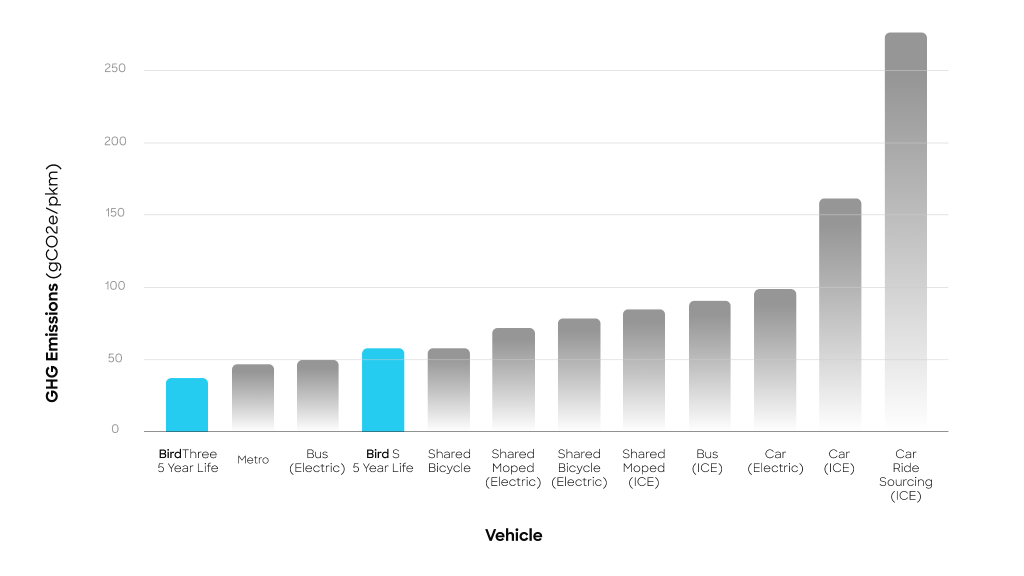Bird is set to become the first micromobility operator to publish an independently verified, ISO-reviewed Life Cycle Analysis (LCA) for its Bird Three e-scooter.
The report shows that the Bird Three has a lifespan of up to five years after refurbishment and is one of the lowest emitters of greenhouse gases in Europe when compared to public transport and other shared modes.

Manufacturing and assembly of Bird’s e-scooters is included in the LCA along with additional manufacturing of components for replacements, transportation of vehicles to target European cities, charging and fleet management, and the e-scooters end-of-life disposal. The LCA takes no credit for Bird’s renewable energy credits, carbon offsets or end-of-life recycling program.
Features of the e-scooter include an Aerospace-grade aluminium chassis, IP68-rated battery protection to keep the battery safe from dust and water, and smart acceleration tech to reduce wear and tear.
Travellers in European cities who take a Bird Three account for an average of approximately 21% less greenhouse gas emissions per kilometre than taking the metro, 77% less than driving a gas-powered car and 87% less than taking a ride-hail car, said Bird.
This LCA emissions model was reviewed and documented by Ramboll, an independent Denmark-based engineering and consulting company that specialises in sustainability and corporate responsibility.
The LCA is being critically reviewed by EarthShift Global, a third-party ISO expert, to ensure that the methods, data and analysis are consistent with ISO standards for LCA. Some of the other shared operators are ISO-compliant but ISO-certified is a step above compliant and requires more work.
Bird is looking to set a new industry standard and enable reliable comparisons across European modes and vehicles.
“The conversation around how long micro-EVs last and their impact on the planet has been too opaque for too long,” Bird’s Senior Director of Public Policy Clayton Lane told Zag Daily.
“With this LCA we are helping cities to compare accurately across modes and operators, so they can make informed decisions to promote sustainable mobility and secondly, substantiate that the Bird Three is a durable, long-lasting, low GHG vehicle.
“Now we are encouraging all operators to strive for this level of LCA to support cities but also to dispel misconceptions left over from the industry’s 2017 inception when early vehicle models didn’t last long.”




